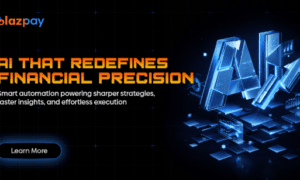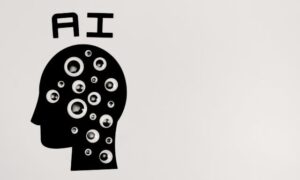In this age of advancements, there is a lot of discussion surrounding the impact of AI models, like ChatGPT, developed by OpenAI, on white-collar jobs. Professionals in fields are closely monitoring the progress and capabilities of these AI tools as they gradually become more integrated into their work.
The introduction of ChatGPT, powered by transformer models, could bring about a transformation. This language model can engage in conversations that resemble interactions and provide relevant responses. It is designed to understand and mimic human-like text, allowing it to perform tasks that were once exclusive to office professionals.
How ChatGPT Will Destabilize White-Collar Work
In recent years, the advent of advanced AI systems has ushered in a new era in the world of work. One notable development is the rise of language models like ChatGPT, poised to reshape white-collar jobs’ future. These developments come with opportunities and challenges as we delve into the potential impacts of ChatGPT on the traditional white-collar landscape.
The Changing Landscape of White-Collar Work:
With the integration of AI into various industries, businesses are using ChatGPT to automation routine tasks and streamline operations. Tasks that were once exclusively handled by human workers, such as data analysis and legal work, are now being managed by AI models like the use of ChatGPT. This shift alters job roles and responsibilities as white-collar professionals adapt to this technological transformation.
Impact of ChatGPT on Job Roles:
ChatGPT and other AI technologies have the potential to disrupt white collar jobs significantly. For instance, tasks currently done by paralegals, such as legal research and document review, can be automated using AI. Similarly, businesses are using ChatGPT to create copy for their websites and promotional materials, a task that was previously entrusted to human copywriters. This may lead to job displacement, raising concerns about the future employability of workers whose roles can be automated.
Balancing Disruption and Opportunities:
While there is no denying that AI, including ChatGPT, could destabilize certain job roles, it’s also essential to recognize the potential benefits. As AI takes over routine tasks, white-collar workers can take on more strategic and creative responsibilities. The efficiency brought by AI can also free up time and resources for exploring new opportunities, potentially leading to the creation of new job roles that capitalize on AI’s capabilities.
Navigating the Changing Landscape:
In a rapidly changing job market, staying relevant is crucial for white-collar professionals. The rise of ChatGPT and other advanced AI models underscores the importance of upskilling and embracing technological trends. Rather than fearing job loss, individuals can leverage AI to enhance their productivity and skills. This might involve collaborating with AI tools to achieve better outcomes, harnessing AI for data-driven insights, or exploring entrepreneurship in AI-driven ventures.
The Road Ahead:
As technology continues to advance, the impact of ChatGPT is coming into sharper focus. ChatGPT says the potential for job disruption is real, but it’s not a one-sided story. While AI can do work currently done by humans, it also opens doors to new job opportunities that cater to the evolving needs of industries. The memory of past technological revolutions causing mass job loss among highly educated workers reminds us to tread carefully. Yet, it also points to the resilience of humans in adapting to change.
While concerns persist about job displacement, it’s clear that AI could also bring about new dimensions of work, blending the capabilities of AI and humans. As we navigate this changing terrain, a proactive approach to upskilling and embracing the benefits of AI is crucial for individuals to survive and thrive in the redefined white-collar realm.
The Effect of ChatGPT on White Collar Workers
In the modern landscape, technological advancements continue to reshape various aspects of our lives, and the professional realm is no exception. One notable development is the rise of generative AI, particularly exemplified by ChatGPT, a language model developed by OpenAI. This innovation can potentially disrupt white-collar work, prompting us to explore its effects on the workforce.
The Potential Disruption of White Collar Jobs
Generative AI, such as ChatGPT, can disrupt white-collar jobs in ways that were previously unimaginable. The capacity of AI to automate tasks that were once the exclusive domain of human workers raises questions about the future of many professions. While eliminating jobs is not guaranteed, the employment landscape is undoubtedly shifting.
The Coexistence of Humans and AI
It’s important to note that ChatGPT can also complement human jobs. Instead of outright replacement, these AI tools can be valuable aides to professionals. For instance, in fields like content creation, data analysis, and customer service, ChatGPT can streamline processes, enhance productivity, and allow workers to focus on higher-level tasks that require creativity and critical thinking.
White Collar Workers’ Adaptation
Amid concerns about potential job displacement, white-collar workers can take proactive steps to adapt to this evolving landscape. Instead of viewing AI as a threat, individuals can harness its capabilities to their advantage. Acquiring a working knowledge of effectively collaborating with AI, understanding its limitations, and identifying areas where human expertise is indispensable can empower professionals to remain relevant and valuable.
Exploring the Potential Benefits
The introduction of ChatGPT and similar generative AI models presents a spectrum of benefits. Time-consuming and repetitive tasks once a staple of white-collar work can now be automated, freeing employees to engage in more strategic and innovative endeavours. This shift can ultimately lead to a more fulfilling work experience, where individuals can focus on tasks that require human ingenuity.
However, it’s crucial to recognize that the relationship between humans and AI doesn’t have to be adversarial. By embracing AI as a tool for augmentation and learning how to collaborate effectively, white-collar workers can navigate this disruption and create a future where technology complements human capabilities. As we move forward, it’s essential to remain adaptable, open-minded, and willing to explore the opportunities that emerge from this technological evolution.
Impa ct Of ChatGPT For Human Workers to Reshape the Future of White Collar Work For New Opportunities
ct Of ChatGPT For Human Workers to Reshape the Future of White Collar Work For New Opportunities
In recent years, cutting-edge AI technology has prompted significant changes in various industries, leaving us to ponder its effects on the modern workforce. One notable development is the emergence of ChatGPT, an AI-powered language model that can comprehend and generate human-like text. This technology has brought excitement and apprehension, especially among white-collar workers whose roles often involve information processing, analysis, and communication. Let’s delve into the potential effects of ChatGPT on this group, considering various facets that contribute to the ongoing industry trends.
Redefining Job Landscape: Adapting to AI Co-workers
AI, particularly ChatGPT, is transforming the nature of many tasks that white-collar workers traditionally perform. From drafting emails and reports to generating content for marketing campaigns, ChatGPT’s capabilities are both impressive and disruptive. It raises questions about whether these AI systems might entirely replace jobs or augment human tasks. While certain repetitive tasks may indeed be automated, the complex and nuanced aspects of various professions suggest that AI will likely serve as a complementary tool rather than an outright replacement.
The Concern of Job Displacement: Separating Fact from Fiction
Amid the buzz surrounding AI’s rise, concerns about job displacement have gained momentum. It’s crucial, however, to separate hype from reality. While modern memory has caused mass job shifts in the past, the effects of ChatGPT might differ.
Rather than causing a wholesale elimination of jobs, AI could lead to a redistribution of tasks. For instance, routine data entry and report generation might be taken over by AI, allowing human workers to focus on higher-level analysis, strategy development, and creative problem-solving.
Unleashing Creativity: How White Collar Workers Can Leverage ChatGPT
Contrary to the notion of AI as a job-stealing force, ChatGPT also presents opportunities for white-collar workers to enhance their productivity and creativity. Professionals can free up mental space and time for more strategic thinking by offloading routine and time-consuming tasks to AI. This shift could lead to a renewed emphasis on innovation, collaboration, and value creation within various industries. As a result, the technology that raises questions about job security might contribute to a more fulfilling and impactful work environment.
A Dual-Edged Sword: Considering New Job Avenues
While concerns persist about job displacement, the rise of ChatGPT may also create new job opportunities. The need for AI oversight, content curation, and customization of AI-generated outputs will likely increase. This means that individuals with expertise in configuring, supervising, and refining AI systems will be in demand. Moreover, AI’s ethical and social dimensions require human input to ensure responsible and unbiased use, fostering the growth of roles related to AI governance and ethical considerations.
While apprehensions about job displacement are valid, a more nuanced perspective reveals that AI is more likely to reshape roles than obliterate them. The key lies in recognizing the potential for AI to elevate the workforce by freeing individuals from routine tasks and enabling them to focus on higher-value contributions. By adapting to these changes and harnessing the benefits of ChatGPT, white-collar workers can navigate disruption and thrive in an evolving job landscape.
ChatGPT, a product of OpenAI, is more than just an intelligent conversational AI. It represents a seismic shift in how white-collar work functions. So, how exactly is this technology leading the charge in the destabilization of typical white-collar work paradigms?
1. The Democratization of Information
ChatGPT brings to the table the democratization of knowledge. Now, anyone can get free access to ChatGPT in 2023. This makes vast amounts of information available to everyone, leveling the playing field between experts and novices.
“The future is about collaboration, not hierarchy. It’s about collective intelligence.”
2. A New Earning Paradigm
There’s a growing community leveraging ChatGPT to generate income. Curious how they do it? Here’s a complete guide that dives deep into the methodologies and strategies involved. This new paradigm creates entrepreneurial opportunities for many, challenging the traditional roles within white-collar sectors.
3. Education’s Evolution
ChatGPT isn’t just altering professional landscapes. The effects of ChatGPT on education are profound. As students and educators harness its power, we’re seeing a more personalized and effective learning approach.
4. Integrative Technological Solutions
ChatGPT isn’t just a standalone marvel. Companies like RealTech are integrating ChatGPT with solutions like SAP software, which optimizes business processes, making many traditional white-collar tasks redundant.
5. Affordability and Accessibility
Remember when AI solutions were expensive and exclusive? Those days are gone, thanks to platforms like Chum GPT which offers unlimited ChatGPT usage for just $7. Such accessibility further pushes the envelope, making advanced tech tools available to the masses.
6. Democratizing Professional Communication
One of the most significant influences of ChatGPT is the democratization of information and communication. Take mobile applications, for instance. The best ChatGPT apps for mobile in 2023 have enabled professionals across the globe to access high-quality content, data interpretation, and even document creation, directly from their devices.
“We’re transitioning from a world where professionals hold the keys to information, to one where access is universal.”
7. Marketing Reinvented
Traditional marketing roles are experiencing upheaval as ChatGPT finds its footing in the domain. Armed with 100 ChatGPT prompts for marketing, even small businesses without expansive marketing teams can create compelling campaigns, leveling the competitive landscape.
8. The Shift in E-Commerce
White-collar jobs aren’t just about office desks and board meetings. The e-commerce realm, a critical segment of the digital white-collar space, is also feeling the tremors of this shift. Platforms like Shopifico guide users to maximize success with pre-built Shopify stores, integrating AI-driven tools like ChatGPT. It’s not just about selling anymore; it’s about intelligently engaging.
8. The Rise of Dropshipping
E-commerce evolution doesn’t end with pre-built stores. The rise of dropshipping is reshaping how business is done online. By understanding the top dropshipping store providers and integrating AI solutions, entrepreneurs are redefining commerce.
The Road Ahead
The introduction of tools and platforms harnessing the power of ChatGPT is just the tip of the iceberg. From professional communication to redefining marketing strategies and reshaping e-commerce, the changes are profound.
A Deep Dive into The World of ChatGPT in 2023
If you’re keen on catching up with all the buzz around ChatGPT this year, this article covers all updates you need to know for 2023. From data insights to maximizing your experience with this revolutionary AI, TechBullion has got you covered.
- Want to explore how ChatGPT empowers data analysts? Delve into the power of ChatGPT in data analysis.
- Facing issues with ChatGPT login? Here’s a solution-focused guide on how to fix ChatGPT login problems.
- SEO enthusiasts, here’s a gem for you! Understand the role of ChatGPT in SEO.




































